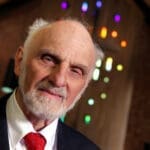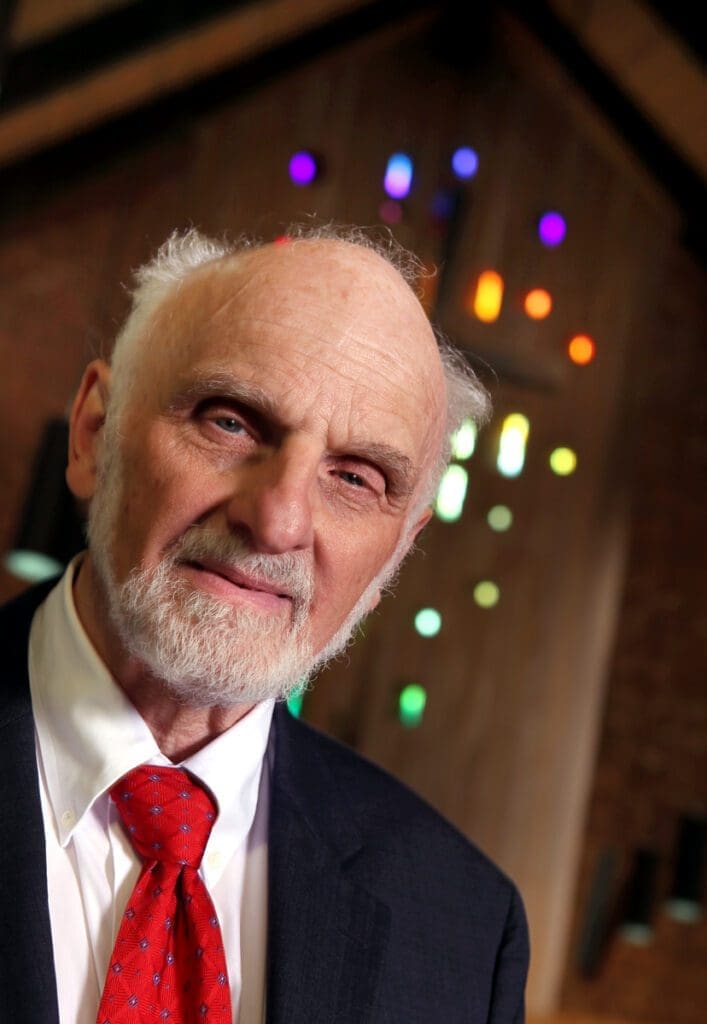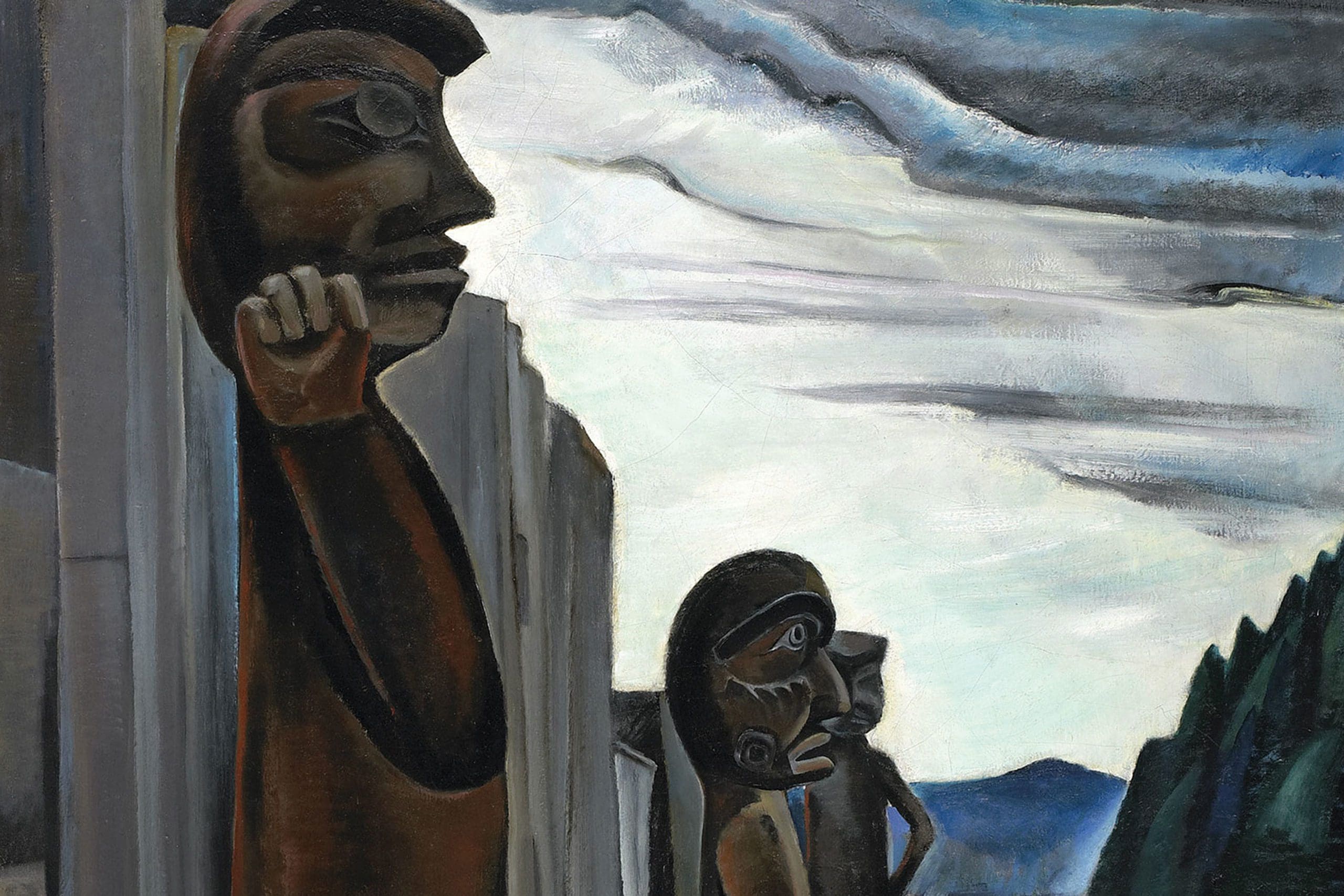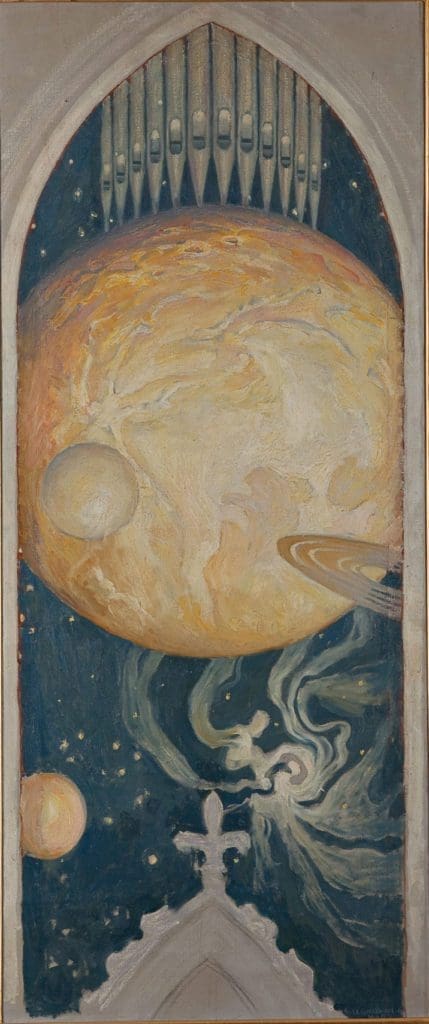A
A Truth Greatly Reduced
The preacher in US culture deals with a claim that is commonly accepted as the truth by the listeners. That is, we preach mostly to believers. There is a casual, indifferent readiness, even in our increasingly secularized society, to grant the main claims of the gospel—not to grant them importance, but to accept them as premises of religious life. In fact it is precisely the problem for the proclamation of the gospel that the great claims of the gospel do not seem to be problematic or in question.
The gospel is too readily heard and taken for granted, as though it contained no unsettling news and no unwelcome threat. What began as news in the gospel is easily assumed, slotted, and conveniently dismissed. We depart having heard, but without noticing the urge to transformation that is not readily compatible with our comfortable believing that asks little and receives less.
The gospel is thus a truth widely held, but a truth greatly reduced. It is a truth that has been flattened, trivialized, and rendered inane. Partly, the gospel is simply an old habit among us, neither valued nor questioned. But more than that, our technical way of thinking reduces mystery to problem, transforms assurance into certitude, revises quality into quantity, and so takes the categories of biblical faith and represents them in manageable shapes.
Or, if our technical reason does not pervert the truth of the gospel in relative naïveté, our unwitting embrace of social ideology distorts the news so that it can be accommodated to a variety of social ideologies, of the right and of the left. While my propensities are to value more greatly ideologies of the left, any ideology—by which I mean closed, managed useful truth—destroys the power and claim of the gospel. When we embrace ideology uncritically, it is assumed that the Bible squares easily with capitalist ideology, or narcissistic psychology, or revolutionary politics, or conformist morality, or romantic liberalism. There is then no danger, no energy, no possibility, no opening for newness!
Preaching among us happens in this context in which truth is greatly reduced. That means the gospel may have been twisted, pressed, tailored, and gerrymandered until it is comfortable with technological reason that leaves us unbothered, and with ideology that leaves us with uncriticized absolutes. When truth is mediated in such positivistic, ideological, and therefore partisan ways, humaneness wavers, the prospect for humanness is at risk, and unchecked brutality makes its appearance. We shall not be the community we hope to be if our primary communications are in modes of utilitarian technology and managed, conformed values. The issues facing the church and its preachers may be put this way: Is there another way to speak? Is there another voice to be voiced? Is there an alternative universe of discourse to be practiced that will struggle with the truth in ways unreduced? In the sermon—and in the life of the church, more generally, I propose—we are to practice another way of communication that makes another shaping of life possible; unembarrassed about another rationality, not anxious about accommodating the reason of this age.
Reduced speech leads to reduced lives.
The task and possibility of preaching is to open out the good news of the gospel with alternative modes of speech—speech that is dramatic, artistic, capable of inviting persons to join in another conversation, free of the reason of technique, unencumbered by ontologies that grow abstract, unembarrassed about concreteness. Such speech, when heard in freedom, assaults imagination and pushes out the presumed world in which most of us are trapped. Reduced speech leads to reduced lives. Sunday morning is the practice of a counter life through counter speech. The church on Sunday morning, or whenever it engages in its odd speech, may be the last place left in our society for imaginative speech that permits people to enter into new worlds of faith and to participate in joyous, obedient life.
A Subversive Fiction
To address the issue of a truth greatly reduced requires us to be poets that speak against a prose world. The terms of that phrase are readily misunderstood. By prose I refer to a world that is organized in settled formulas, so that even pastoral prayers and love letters sound like memos. By poetry, I do not mean rhyme, rhythm, or meter, but language that moves like Bob Gibson’s fastball, that jumps at the right moment, that breaks open old worlds with surprise, abrasion, and pace. Poetic speech is the only proclamation worth doing in a situation of reductionism, the only proclamation, I submit, that is worthy of the name preaching. Such preaching is not moral instruction or problem solving or doctrinal clarification. It is not good advice, nor is it romantic caressing, nor is it a soothing good humour.
It is, rather, the ready, steady, surprising proposal that the real world in which God invites us to live is not the one made available by the rules of this age. The preacher has an awesome opportunity to offer an evangelical world: an existence shaped by the news of the gospel. This offer requires special care for words, because the baptized community awaits speech in order to be a faithful people. What a way to think about a poetic occasion that moves powerfully to expose the prose reductions around us as false!
The tensive interface between a reduced world of prose and a poetic speech of vitality requires us to consider the peculiar role of dramatic, poetic communication, the very kind given us in the text of the Bible. Such speech may seem odd and superfluous among us in our technological inclination. The case is made by many voices, however, that such speech that is daring, liberated, and unaccommodating is crucial, if we are to maintain a possibility of genuine humaneness.
The poet/prophet is a voice that shatters settled reality and evokes new possibility in the listening assembly.
Because we live so close to the biblical text, we often fail to note its generative power to summon and evoke new life. Broadly construed, the language of the biblical text is prophetic: it anticipates and summons realities that live beyond the conventions of our day-to-day, take-for-granted world. The Bible is our firm guarantee that in a world of technological naïveté and ideological reductionism, prophetic construals of another world are still possible, still worth doing, still longingly received by those who live at the edge of despair, resignation, and conformity. Our preferred language is to call such speech prophetic, but we might also term it poetic. Those whom the ancient Israelites called prophets, the equally ancient Greeks called poets. The poet/prophet is a voice that shatters settled reality and evokes new possibility in the listening assembly. Preaching continues that dangerous, indispensable habit of speech. The poetic speech of text and of sermon is a prophetic construal of a world beyond the one taken for granted.
Hans Urs von Balthasar, the magisterial Roman Catholic scholar, has written of this shattering, evoking speech:
God needs prophets in order to make himself known, and all prophets are necessarily artistic. What a prophet has to say can never be said in prose.
This poetic/prophetic utterance runs great risk. It runs the risk of being heard as fantasy and falsehood.
Indeed, judged by the firm, settled, technical certitude of this age, or measured by the uncritical ideology of the world we take for granted, the world offered in the biblical tradition of poetic utterance hardly has a claim to reality. It so little fits with the presumed world around us that the evangelical world of the tradition sounds like fiction. The notion of fiction, however, is not so precarious or easily dismissed as we might imagine. It is precisely the daring work of fiction to probe beyond settled truth and to walk to the edge of alternatives not yet available to us. It is this probe behind our settlements that makes newness possible. The more tightly we hold to settled reality, the more likely the alternative construal of the poet will be dismissed as “mere fiction.” The poet/prophet, however, does not flinch from “fiction,” for the alternative envisioned in such speech is a proposal that destabilizes all our settled “facts,” and opens the way for transformation and the gift of newness.
In meditating on the daring of poetic speech to move beyond settled reality, Wallace Stevens does not flinch from using the category of fiction. Impossibly daring visions of the possible are the prerequisite to move beyond the truth so long held that it kills. Stevens writes,
It is possible, possible, possible. It must
Be possible. It must be that in time
The real will from its crude compoundings come,
Seeming, at first, a beast disgorged, unlike,
Warmed by a desperate milk. To find the real,
To be stripped of every fiction except one,
The fiction of an absolute. . . .
Garrett Green concludes his essay honouring Hans Frei with these suggestive words:
The important point to be emphasized, to theologians especially, is that this story, however enigmatic, is the true story, the only story Christians have to tell, and that it has no unstoried form. If it sometimes seems so incredible as to strain the imagination and offend the reason, the wise theologians will attempt no defense beyond a reminder (paraphrasing 1 Cor. 1:25) that the fictions of God are truer than the facts of men.
The entertainment of a “fiction” drives us beyond known truth. From the great narratives of Israel to the prophetic poems to the testimony of early Christians, the singers and storytellers spoke dangerously about dangerous matters, about new possibilities. The settled, entrenched, and certain heard only fiction, but it was a “fiction” more powerful than facts.
I want to consider preaching as a poetic construal of an alternative world. The purpose of such preaching is to cherish the truth, to open the truth from its pervasive reductionism in our society, to break the fearful rationality that keeps the news from being new. In framing this theme, I have borrowed a phrase from Walt Whitman, who celebrates the cruciality of poetry. To be sure, Whitman intends something other than I intend. Nonetheless, his words say well what I think we must struggle with:
After the seas are all cross’d, (as they seem already cross’d,)
After the great captains and engineers have accomplish’d their work,
After the noble inventors, after the scientists, the chemist, the geologist, ethnologist,
Finally shall come the poet worthy that name,
The true son of God shall come singing his songs.
After the engineers, inventors, and scientists, after all such control through knowledge, “finally comes the poet.” The poet does not come to have a say until the human community has engaged in its best management. Then perchance comes the power of poetry—shattering, evocative speech that breaks fixed conclusions and presses us always toward new, dangerous, imaginative possibilities.
The continuing practice of this artistic speech voiced in the prophetic construal of the Bible is the primary trust of the church and its preaching. This speech prevents our reduced world from becoming brutal and coldly closed upon us. This speech, entrusted to and practiced by the church, is an act of relentless hope; an argument against the ideological closing of life we unwittingly embrace.
A New World Voiced
The meeting of the community of faith is a speech meeting. We gather for speaking and listening of an odd kind. That meeting has the potential of evoking a new humanity. There are four partners who need to be present in the meeting so that the new reality can be birthed.
- The first partner in the meeting is the text. The congregation gathers with a vague memory of the text—a memory that has the text mostly reduced, trivialized, and domesticated. It has been necessary to reduce the text all week, because there is neither time nor freedom for nuance, and because reductionism may permit one a tenacious hold on just a hint of the claim of the text. The community does not doubt the text, but it has been mostly impossible to remember the text all week with its angular scandal, its tensiveness, its density, and its amazement. All week we have been practicing our nervy autonomy where God is not real. All who watch the news regularly run the risk of becoming dulled to it, to missing the real news that mocks the world in which we live. All week the ideology of our nation, our class, our sect, our sex has seemed closed, settled, and ready for defence. We trust excessively and vigorously in our ideological commitments, which we accept as a rendering of the text. In such excessive trust, we do not venture beyond the little commitments of our ideology to face the troubled mysteries of life. We reason, in our uneasy confidence, that it is better to have even a modest resolution than none at all. Without our little ideological resolutions, the realities around us are too wild and unsettled. So we cling to the biblical text, now domesticated by our tenacious ideology. The text lingers in our midst, but it has been misshapen and diminished, and robbed of its dangerous power.
In its distorted voice, the text has come to sound strangely like Adam Smith or Thomas Hobbes or Jean-Jacques Rousseau or Alfred North Whitehead or Karl Marx. Or Carl Jung or Eric Berne or Daniel Moynihan. There is then a wistful wonderment when we gather again around the text on Sunday morning. What is that text into which I have been baptized? Is there a life carried in the text? Is there indeed a word from the Lord that would let me live? The answer in part depends on this: Is there a poet who can render the text clearly without fuzziness, but also without a seducing certitude that covers over where I live? Is there a word there that can rescue me from my exhausted coping?
- The second partner in the meeting is the baptized. The community gathers to be shaped by a text that addresses us, an articulation of reality that lies outside us that we cannot conjure and need not defend. The ones who gather have been baptized. They may understand only in an inchoate way, but they have in fact made some vague decision about the cruciality of this text. They do not have a clear articulation of the text’s authority. Or they have a clear articulation that has become so scholastic as to be without use. Nonetheless, they are prepared to accept, in a general way, that this text is their text, the voice of life addressed to them.
The baptized, then, have been struggling with this text. The ones gathered are those who have either been trying other texts and have found them wanting, or have greatly resisted other texts and need this text reiterated once again. Either way, out of compromise or resistance, the community gathers not for entertainment or private opinion, or even for problem solving, but for the text made available yet again. They gather to hear the text that is shamelessly theological, candidly kerygmatic, and naively eschatological. The community waits for the text that may be a tent for the Spirit. It waits with the hopeful yearning that the “house of authority” is still intact. But if the text is to claim authority it will require neither the close reasoning of a canon lawyer, nor the precision of a technician, but it will require an artist to render the text in quite fresh ways, so that the text breaks life open among the baptized as it never has before.
- There is a text in its boldness. There is a congregation, perhaps reduced and diminished by fatigue. Third, there is this specific occasion for speech. When the music stops and the rheostat is turned down, then there is this precious, awesome moment of speech. It is not time for cleverness or novelty. It is not time for advice or scolding or urging, because the text is not any problem-solving answer or a flat, ideological agent that can bring resolve. This moment of speech is a poetic rendering in a community that has come all too often to expect nothing but prose. It is a prose world for all those who must meet payrolls and grade papers and pump gas and fly planes. When the text, too, has been reduced to prose, life becomes so prosaic that there is a dread dullness that besets the human spirit. We become mindless conformists or angry protesters, and there is no health in us. We become so beaten by prose that only poetic articulation has a chance to let us live.
Into this situation, in this moment, the preacher must speak. She does not get to speak a new text. She must speak an old text—the one everybody knows. From the very first syllable, the ending is already known. But it is a script to be played afresh, so that in this moment of drama the players render the play as a surprise to permit a fresh hearing, a second opinion. It is an artistic moment in which the words are concrete but open, close to our life but moving out to new angles of reality. At the end, there is a breathless waiting: stunned, not sure we have reached the end. Then there is a powerful sense that a world has been rendered in which I may live, a world that is truly home but from which I have been alienated. The speaker must truly be a poet. After the scientist and the engineer, “finally comes the poet” (which Israel calls prophet)—to evoke a different world, a new song, a fresh move, a new identity, a resolve about ethics, a being at home.
- There is a text that looms in resilient power. There is a waiting congregation, perhaps not tired out, but too sure of self, pretending buoyancy where there might have been transformation. There is the voice that takes the old script and renders it to evoke a new world we had not yet witnessed (cf. Isaiah 43:19). The fourth and final partner is this better world given as fresh revelation. Something is revealed, we know not how: a probe behind the closed parameters of religion too-long settled and politics too-easily comfortable. It is not only truth disclosed, but it is life disclosed. Life unclosed, life made open, certitudes broken so that we can redecide, images moving, imagination assaulting ideology. We find new configurations of life yet unformed, unthought, but now available. The old slogans sound unconvincing. I thought I had come for certitude, but the poetic speech does not give certitude. As I am addressed by the gospel, I hear anew that possibility overwhelms necessity in my life. The only available absolute given me is a “fiction” to which I must trust myself—a gracious “fiction” on which I stake my life, authored by God who also authors the text and the speech.
It is not only truth disclosed, but it is life disclosed.
The congregation departs. Same old quarrels in the car on the way home. Same old tensions at dinner. Same tired beginning on Monday. Now, however, there is disclosed a new word, a new hope, a new verb, a new conversation, a new risk, a new possibility. It is not a new truth, but rather one long known that had been greatly reduced. That long-known truth is now greatly enhanced in riches, texture, availability, demand. My life is mapped in mystery and I accept that new life; but it is also mapped in vulnerability and it frightens me. The mystery gives regal authority and freedom in the face of an IRS audit. The vulnerability permits me to come out from behind my desk, my stethoscope, my uniform, my competence, my credentials, my fears—to meet life a little more boldly. Yet again, as the word is spoken one more time, we move through the wearisome death-ridden days of our life and come back once again to Easter to be stunned into disbelief, and then beyond disbelief, to be stunned to life, now filled with fear and trembling.
The meeting involves this old text, the spent congregation believing but impoverished, the artist of new possibility, the disclosure. The Prince of Darkness tries frantically to keep the world closed so that we can be administered. The Prince has such powerful allies in this age. Against such enormous odds, however, there is the working of this feeble, inscrutable, unshackled moment of sermon. Sometimes the Prince will win the day and there is no new thing uttered or heard. Sometimes, however, the sermon will have its say and the truth looms large—larger than the text or the voice or the folk had any reason to expect. When that happens, the world is set loose toward healing. The sermon for such a time shames the Prince and we become yet again more nearly human. The Author of the text laughs in delight, the way that Author has laughed only at creation and at Easter, but laughs again when the sermon carries the day against the prose of the Dark Prince who wants no new poetry in the region he thinks he governs. Where the poetry is sounded, the Prince knows a little of the territory has been lost to its true Ruler. The newly claimed territory becomes a new home of freedom, justice, peace, and abiding joy. This happens when the poet comes, when the poet speaks, when the preacher comes as poet.
This essay was excerpted with permission from the introduction to Walter Brueggemann’s Finally Comes the Poet: Daring Speech for Proclamation, published in 1989 by Fortress Press.







